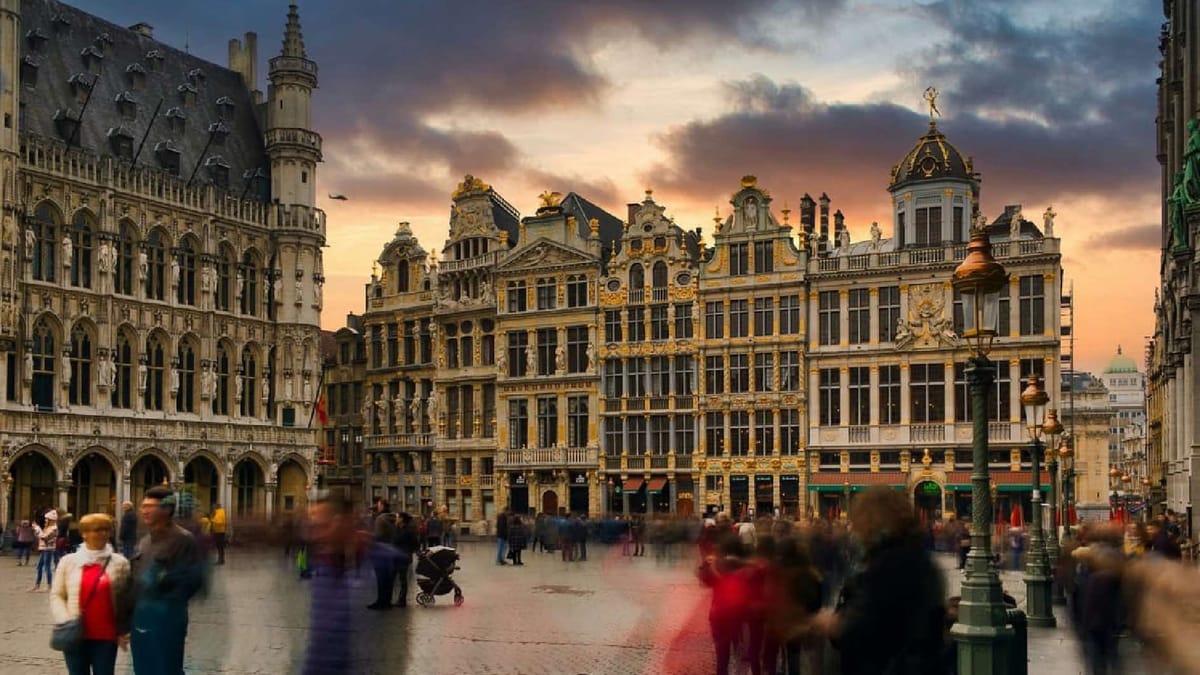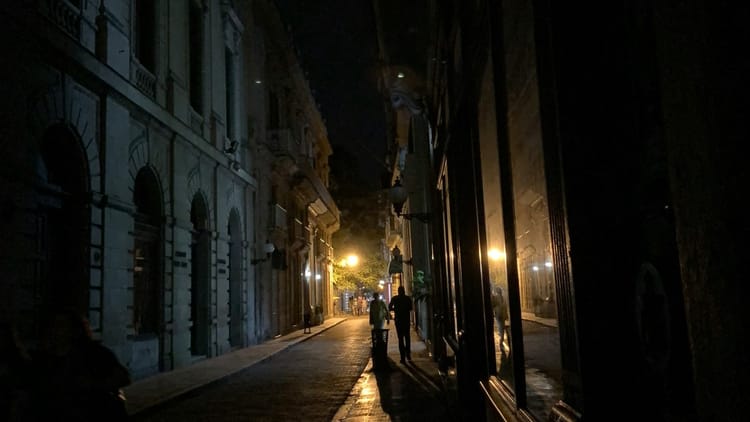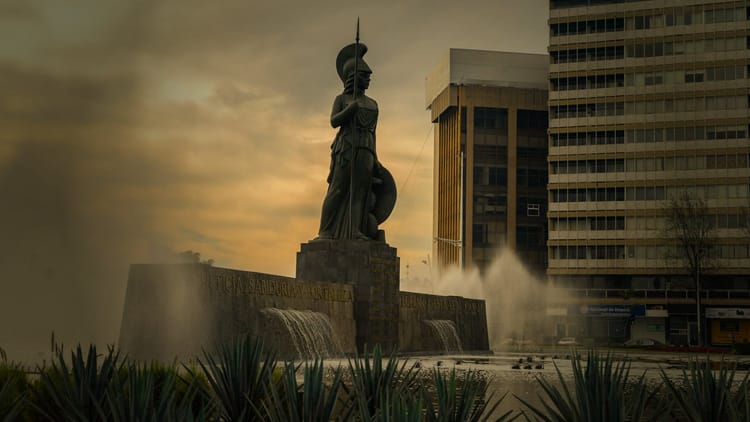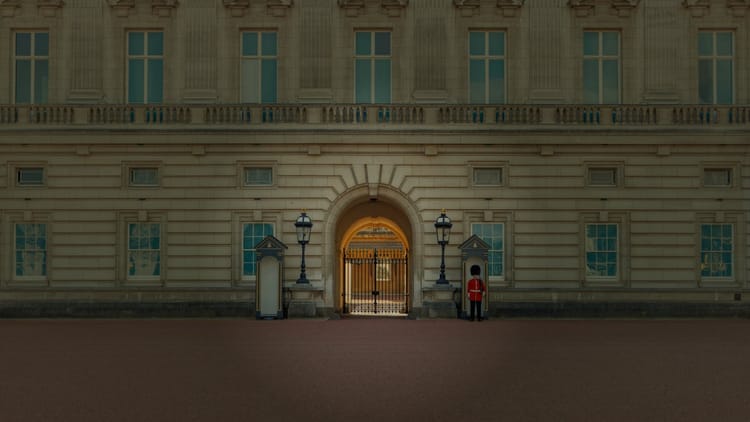The 24-hour government

Recently—in the weekend despatch: A social app for making anyone do anything. Easy money with the House of Saud. &c.
Today: Can a government fall before it begins? France’s new prime minister resigned on Monday morning—right after announcing his cabinet and before holding a single meeting. It’s the country’s fifth PM in under two years, and the speed of collapse suggests something beyond ordinary paralysis.
For members—new feature: Why are American universities letting foreign governments bully their students? Sarah McLaughlin on the business model behind the pressure.
+ New music from The Divine Comedy ...
Developments
- France’s shortest-lived government. France’s Prime Minister Sébastien Lecornu resigned on Monday, less than 24 hours after naming his cabinet and just 27 days into the job—making him the shortest-serving premier in the Fifth Republic’s history. Both left and right denounced the lineup, with even his reappointed interior minister, Bruno Retailleau, saying it “does not reflect the promised break” with the past. President Emmanuel Macron’s fifth prime minister in less than two years quit before holding a single cabinet meeting. France faces a €3.3 trillion debt crisis, can’t pass a 2026 budget, and saw French stocks drop more than 2 percent on the news.
- An uprising in Tbilisi. Georgian authorities used water cannons and tear gas on Saturday to drive back 20,000 protesters who tried storming the presidential palace during local elections that opposition parties boycotted. Opera singer Paata Burchuladze read a declaration claiming power “returns to the people” before the attempt; he was later arrested in a hospital ICU, where doctors were treating him for a heart attack. Prime Minister Irakli Kobakhidze accused the European Union of backing an “attempted coup” and pledged to “completely neutralize foreign agents.” Five organizers face up to nine years in prison.
- Syria’s first post-Assad vote. On Monday, Syria announced the results of its first parliamentary elections since Bashar al-Assad’s ouster in December, with about 6,000 handpicked electoral-college members choosing 119 of 210 legislators Sunday. Only six women won seats—four percent of those elected—despite a 20-percent target. Just two Christians were elected. President Ahmed al-Sharaa will appoint the remaining 70 members and is expected to address representation gaps. Critics call the indirect system undemocratic; defenders cite the lack of census data after 14 years of war. Sweida province and Kurdish-controlled areas didn’t participate.
- U.S. federal courts block Trump’s National Guard deployments. On Sunday night, a federal judge in Oregon barred the Trump administration from mobilizing California National Guard troops to Portland—expanding an earlier order that stopped it from mobilizing the Oregon National Guard directly. (U.S. District Judge Karin Immergut ruled that the action violates federal statute law, along with the Tenth Amendment of the U.S. Constitution.) President Donald Trump had sent 300 California troops hours after Saturday’s initial ruling. On Monday, Illinois and Chicago sued to block deployment there—with Governor J.B. Pritzker saying the administration gave him “an ultimatum: call up your troops, or we will.” A hearing is scheduled for Thursday.
- In Washington, D.C., day six, no end in sight. The U.S. Senate voted on Monday—for the fifth time since October 1—on competing proposals to end the federal-government shutdown, with both falling short of the 60 votes needed. Republicans want a clean continuing resolution through November 21; Democrats demand permanent extensions of health-insurance subsidies set to expire on December 31. Speaker Mike Johnson canceled plans for the House to return this week, saying “there’s nothing for the House to negotiate.” About 900,000 federal employees are furloughed, with another 700,000 working without pay.

The 24-hour government
In France, President Macron appointed Lecornu as prime minister on September 9, replacing François Bayrou, who’d lost a confidence vote 364 to 194. Lecornu spent weeks assembling a cabinet. On Sunday evening, he announced his ministers. By Monday morning, he’d resigned—27 days into the job, less than 24 hours after naming his team and before holding a single cabinet meeting.
The collapse came faster than anyone predicted. Lecornu’s lineup kept 12 of 18 ministers from Bayrou’s government, including the controversial return of Bruno Le Maire as defense minister. The left condemned it. The right condemned it. On Sunday night, even Retailleau, Lecornu’s own reappointed interior minister and head of the center-right Republicans, condemned it, saying the composition “does not reflect the promised break.” France needs to pass a budget by mid-October to avoid emergency measures. The country’s public debt stands at €3.3 trillion—114 percent of GDP, the highest in Europe after Greece and Italy. France’s CAC 40 stock-market index dropped more than 2 percent. The far-right leader Marine Le Pen called for Macron to dissolve parliament or resign. The far-left leader Jean-Luc Mélenchon demanded impeachment.
Lecornu blamed “partisan appetites” and said each party is acting “as if they have their own majority in parliament.” He appears to be right about that much: Last year’s elections left the legislature split among left, center, and right, the three blocs agreeing on very little. But the speed of the collapse points to something beyond normal paralysis. As Matthias Matthijs has explored here in The Signal, political fragmentation across Europe is making it harder to form governments—and making those formed “mismatched and ineffective,” which only stokes more dissatisfaction. France has now reached the point where it can’t even complete the first step. Macron’s fifth prime minister in under two years couldn’t survive long enough to govern. Now, it seems, the fragmentation hasn’t just made cabinets unworkable; it’s made forming them impossible.

Wary of fast fashion?
Shop Congo Clothing Company and
make a difference—in style.

Feature
Censors without borders
Why are American universities letting foreign governments bully their students? Sarah McLaughlin on the business model behind the pressure.

Shortly before the 2022 Winter Olympics in Beijing, students at George Washington University put up posters criticizing the Chinese Communist Party. The posters called out Beijing’s repression of Tibetan monks and Uyghurs, its Covid-19 cover-up, the whole surveillance apparatus.
The university’s Chinese Students and Scholars Association chapter demanded those responsible be “severely” punished for their “naked attack on the Chinese nation.” Then Mark S. Wrighton, the university’s president, said he felt “personally offended by the posters” and promised to “determine who is responsible.” Campus police started reviewing CCTV footage.
It’s disorienting, the idea of American university leaders silencing criticism of foreign governments on their own campuses. But it’s common now—Chinese, Qatari, Emirati, even Indian or Israeli officials pushing for student censorship. Free speech on American campuses has been contested for years, but the notion that a foreign government could shut it down? Still shocking.
How does that happen?
Sarah McLaughlin is a senior scholar at the Foundation for Individual Rights and Expression and the author of Authoritarians in the Academy: How the Internationalization of Higher Education and Borderless Censorship Threaten Free Speech. McLaughlin says American universities haven’t just become compliant with foreign-state criticisms for some reason; they’ve actually enmeshed their interests with foreign states’ altogether. Many of these universities have set up satellite campuses in Gulf states and China, where they can’t protect students’ free expression. And struggling to meet funding requirements, they’ve come to rely heavily on tuition from Chinese students. That gives Beijing substantial leverage—and puts thousands of Chinese students on American campuses within reach of their government’s threats and surveillance.
One reason universities haven’t defended free speech more forcefully, McLaughlin says, is that they just aren’t, themselves, what they used to be. Power has shifted from professors to administrators and business-minded officials whose first concern is branding and finances, not academic freedom. Part-time adjunct roles have replaced full-time professorships. Lecturers don’t have the labor protections they once did—they’re on short-term contracts now. Who’s going to pressure senior leadership to protect free expression when they’re constantly worried about being fired by that same leadership?
Your loyal guide to a changing world.
Membership with The Signal means exclusive access to premium benefits:
- Regular profiles on the questions behind the headlines
- In-depth feature interviews with our network of specialist contributors from across America and around the world
- The despatch, our weekly current-affairs and cultural-intelligence briefing
- Early access to new products, including print extras
It also means vital support for an independent new enterprise in current-affairs journalism.
‘Achilles’
Neil Hannon’s band The Divine Comedy has returned with a new album, Rainy Sunday Afternoon. And while the title might not sound like much fun—unless, maybe it does to you—Hannon’s sense of mirth is on full display here, with the tale of Achilles retold in a twentieth-century setting. No, it doesn’t end well—but here, that’s not the point.






